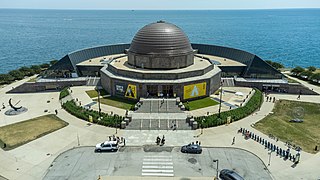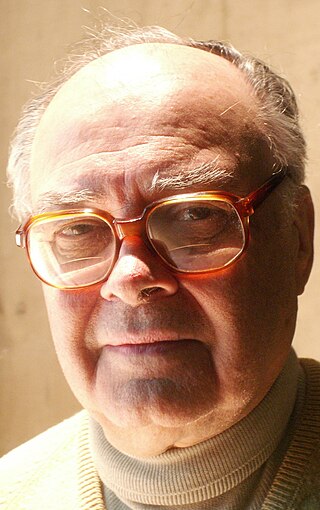Related Research Articles

Georg von Peuerbach was an Austrian astronomer, poet, mathematician and instrument maker, best known for his streamlined presentation of Ptolemaic astronomy in the Theoricae Novae Planetarum. Peuerbach was instrumental in making astronomy, mathematics and literature simple and accessible for Europeans during the Renaissance and beyond.

The Summer Triangle is an astronomical asterism in the northern celestial hemisphere. The defining vertices of this imaginary triangle are at Altair, Deneb, and Vega, each of which is the brightest star of its constellation. The greatest declination is +45° and lowest is +9° meaning the three can be seen from all places in the Northern Hemisphere and from the home of most people resident in the Southern Hemisphere. The two stars in Aquila and Cygnus represent the head of an eagle and tail of a swan that looks east inscribed into the triangle and forming the altitude of the triangle. Two small constellations, Sagitta and Vulpecula, lie between Aquila in the south of the triangle and Cygnus and Lyra to the north.

The Adler Planetarium is a public museum in Chicago, Illinois, dedicated to astronomy and astrophysics. It was founded in 1930 by local businessman Max Adler. Located on the northeastern tip of Northerly Island on Lake Michigan, the Adler Planetarium was the first planetarium in the United States. It is part of Chicago's Museum Campus, which includes the John G. Shedd Aquarium and The Field Museum. The Planetarium's mission is to inspire exploration and understanding of the universe.

Rudolf König was an Austrian merchant, amateur astronomer and selenographer.

The Royal Observatory of Belgium has been situated in the Uccle municipality of Brussels since 1890.

The Archenhold Observatory was named in honour of Friedrich Simon Archenhold, is an observatory in Berlin-Treptow. It houses the Großer Refraktor, which is the longest pointable telescope in the world. It is also called Die Himmelskanone.
Friedrich Hopfner was an Austrian geodesist, geophysicist and planetary scientist.
Johannes von Gmunden was a German astronomer, mathematician and humanist.

Edmund Samuel Eysler, was an Austrian composer.

Jean Jacques Raimond Jr. was a Dutch astronomer.

Wiener Kunstfilm, in full Wiener Kunstfilm-Industrie, was the first major Austrian film production company. Founded in 1910 as the Erste österreichische Kinofilms-Industrie, it was a pioneer in almost every field of silent film in Austria.

Joseph Delmont was an Austrian film director of some 200 films, largely shorts, in which he was noted for his innovative use of beasts of prey. He was also a cameraman, actor and screenplay writer. During later life he was active as an author.

Hermann B. W. Mucke was an Austrian astronomer and one of the most significant promoters of amateur astronomy in German-speaking Europe. He was born and died in Vienna.

Astronomical Society Ruđer Bošković is an astronomical society in Belgrade, Serbia. Founded in 1934 by a group of students, it is the oldest one in the Balkans. Initially having only several members, today it gathers more than 700 astronomy lovers. It is named after Ruđer Bošković.
Arthur Beer was a German astronomer who worked at Cambridge University
Julius Braunthal (1891–1972) was an Austrian-born historian, magazine editor, and political activist. Braunthal is best remembered as the Secretary of the Socialist International from 1951 to 1956 and for his massive three volume History of the International, first published in German between 1961 and 1971.

George Clyde Fisher, known as Clyde Fisher, was a curator at the American Museum of Natural History and later the head of the Hayden Planetarium.
Rudolf Österreicher, also Rudolf Oesterreicher, was an Austrian writer, librettist, comedy author, author of cabaret texts and biographer. From 1945 to 1947 he was director of the Wiener Stadttheater.

Dieter Bernhard Herrmann was a German historian of astronomy and author of numerous popular science books on astronomy. He was director of the Zeiss Major Planetarium in Berlin from 1987 to 2004. In his scientific work he dealt with the early development of astrophysics and the application of quantitative methods in the history of science.

The Wilhelm Foerster Observatory in Berlin is a large public observatory which allows visitors to observe the sky through several telescopes. The facility is named after the German astronomer Wilhelm Foerster.